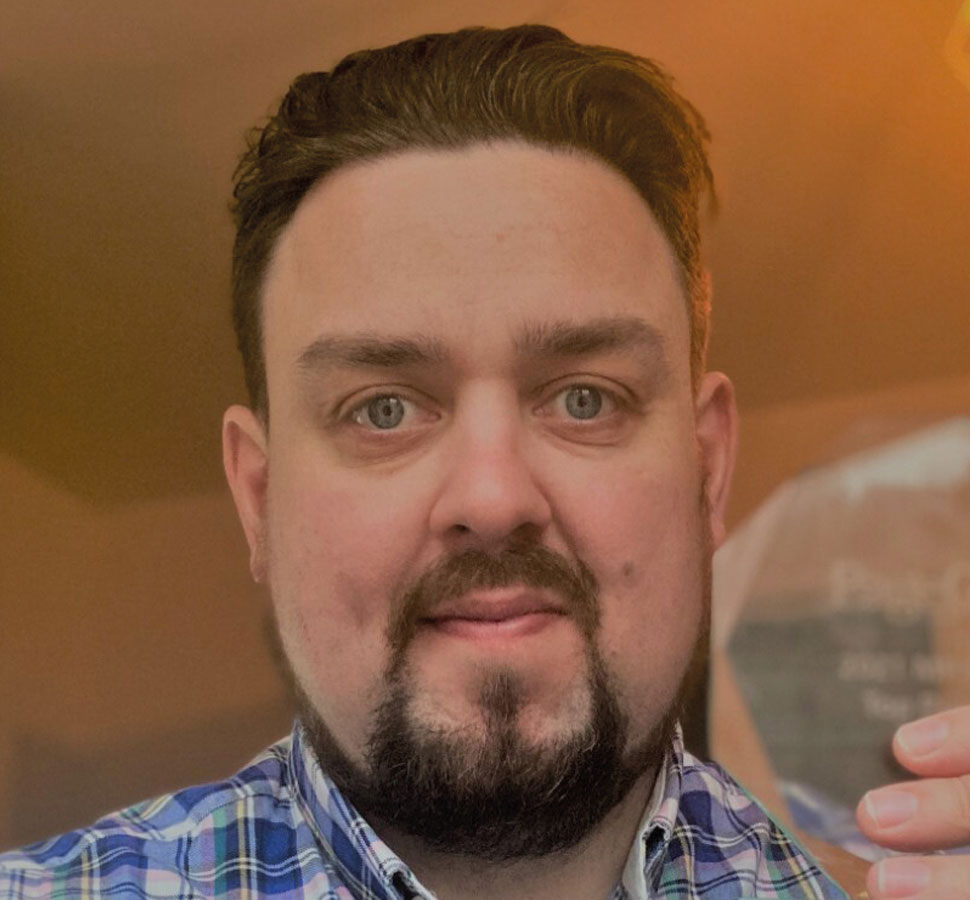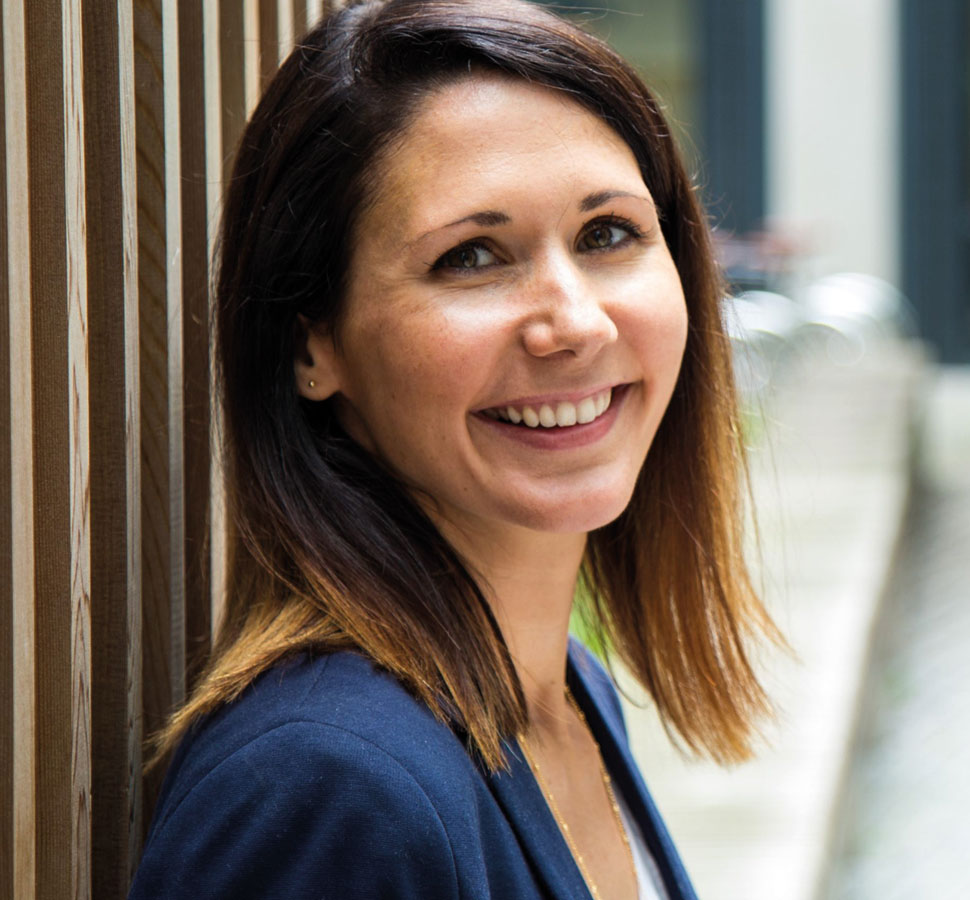Sustainability has emerged as one of the defining challenges of the modern manufacturing landscape. Businesses are waking up to the scale of the task ahead, and employees across the manufacturing space are demanding action.
But how should businesses ensure that their people remain engaged with the sustainability agenda?
To help answer this question, Joe Walton, Director of Michael Page Manufacturing, recently joined the speaking faculty at the Sustainability Symposium, a leading industry event organised by the Manufacturer. He was joined by Natasha Mosscrop, Senior Sustainability Manager at Kerry, on a panel discussion moderated by Lanna Deamer, Reporter at Hennik Research.
Here are some of the key highlights from the session:
Lanna: How has sustainability grown as a topic in recent years?

Joe: It’s evolved massively. At Michael Page Manufacturing, we’ve actually seen it develop most in the context of the Health, Safety and Environment (HSE) compliance remit. The ‘E’ in HSE used to be a bit of an afterthought, but it’s become more and more important. At the same time, it’s a new issue for a lot of candidates and manufacturers. A lot of the businesses we talk to don’t know where to start.
Natasha: I agree, it has evolved hugely in a short time frame, and there now seem to be three key consistent success factors for businesses who are starting on this journey. The first is authenticity, showing that you genuinely care and are determined to make a difference. The second is to make sure you don’t get lost in the details – get started and get people onboard. The third would be to ensure your strategy is relatable, which comes down to making sure people can see where they and their job fit into this.
Lanna: Are there enough candidates to fill all the sustainability roles that are emerging?
Joe: The short answer is no, but the space is evolving quickly. More people are upskilling earlier in their careers. If we want to continue the momentum, it’s important to scale this up.
Lanna: Why is having a sustainability framework important for candidate attraction?
Joe: We’re currently in a candidate-short market, with more roles than candidates to fill them. Sustainability matters to people, especially younger ones, who want to know what companies are doing to support sustainability goals before they join them. So it’s not just about attracting people into sustainability positions – it’s important across the board. Employers need a sustainability framework in place both to keep and retain top talent.
Lanna: Natasha, do you have any advice for employee engagement?
Natasha: Make sure you are taking people on the journey with you. I don’t think you need a perfect plan; that isn’t what people generally want and it will tie you up in knots. Instead, show your intent, involve your people, and make them a part of shaping it. One good option is to run focus group sessions. When you involve people, you can get into action mode a lot faster.
Joe: I would mirror what Natasha said: your approach has to be authentic. The people driving it need to be passionate and to be able to help people see the bigger picture. That’s hard to do when you’re starting small, but a lot of people will want to be a part of it. In fact, you might end up getting involvement from people who you wouldn’t have expected.
Lanna: What are some of the biggest mistakes companies often make?
Natasha: I would say it’s important to have the confidence to make the journey your own. Don’t get to distracted by what others are doing; focus on doing something that meets the needs of your organisation. If you just set out a blueprint approach and put some marketing budget behind it, you could fall victim to greenwashing. The truth will come out in the end, with trust and credibility lost along the way.
Lanna: How senior should a sustainability role be in the company?
Joe: It’s important to have top-down direction. However, it depends on the size of the business. If you’re a smaller company, I think it does need to be a part of the senior leadership team. A lot of these functions are one or two people, sometimes in a big business, so how are they going to get started gaining traction if they don’t have the right level of authority?
It depends on what the leaders of the business see as more important too. Do they want to drive from the shop floor up, or to set out the strategy first?
Lanna: What does success look like?

Natasha: It can be hard to see the success you’re having at first, because behaviour doesn’t change overnight. But eventually, that switch will flick, and you will see pockets of employees becoming more receptive. It may be that someone asks you to come and facilitate a meeting or reaches out to learn more about what you are doing. This is tangible evidence that people are starting to think about it in the context of their day-to-day environment.
The session concluded with an extended questions and answers section, in which the audience put some of their top queries to Joe and Natasha. Here are some of the highlights:
How can you engage employees who feel that sustainability clashes with other objectives or doesn’t matter enough?
Natasha: There is a way to link everyone’s role back to sustainability, so it may be an education need. But a big learning I’ve had is that where the door is firmly closed, leave it, because there are so many other things you could be doing. Go back to those individuals later.
Joe: We did a study recently, and the results showed that 92% of manufacturers know they need to do more for sustainability, but that the percentage actually taking action is under 50%. Things won’t happen overnight and it’s hard to change hearts and minds. Start small, and if it doesn’t work, regroup and start again. Consistency is key, as is authenticity. You’ll get early adopters, and the people who don’t get it initially, will do eventually.
What is the biggest challenge you’ve faced relating to engagement on sustainability projects, or developing internal skillsets?
Natasha: When you’re asking people to do more, they see it as an addition to their day job. This makes it harder to get people involved. However, a transition is starting to happen: we are now seeing a shift toward active engagement, requests to attend sustainability related courses, and a more open willingness to learn. I think the dots are starting to connect and it’s seen as a highly marketable skill to have.
Joe: When it comes to developing skills, it’s a case of getting started and trying something new. If you’ve never done something, of course you won’t know how to do it. That first step is the most important thing.
How do you maintain momentum during busy periods when management are prioritising production needs?
Natasha: Keep your overarching messaging consistent, but if things are rocky, take the pressure off and focus on other priorities. It’s important to have that emotional awareness, and to know when to ease off. Don’t withdraw entirely though, because then you’ll be starting from scratch again. Getting people engaged in sustainability requires agility - you can’t keep the path straight when there are roadblocks, you have to flex around them.
What are your key takeaways?
Natasha: That it’s important to have these kinds of discussions. They are great to validate your own work and approaches – it’s been a great reflection exercise.
Joe: My final comment would be that I don’t think anyone has a grip on what sustainability initiatives need to look like or how big they need to be. It’s an exciting space, and it’s still evolving: the more we talk about our wins and challenges, the better.
Michael Page Manufacturing will continue to support sustainability and talent development initiatives through our partnership with the Manufacturer. At the upcoming Manufacturer MX Awards, we will be sponsoring the People & Skills category and judging the Sustainable Manufacturing category.
At Michael Page Manufacturing, sustainability is one of our key priorities and business areas. For an introductory conversation about your career direction or hiring needs, please get in touch today. Or, for more content like this, please join our LinkedIn group.